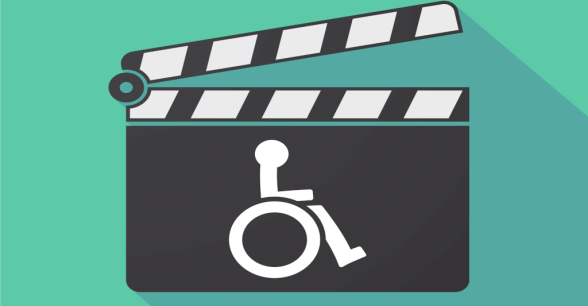Stop Telling Chronic Pain Patients That We Should Just Accept Our Pain
The “pain acceptance” movement has begun to gain traction in the wake of deaths from the opioid epidemic—at its most basic, pain acceptance counsels that people in chronic pain should accept that they will always be in some level of pain, and that they should learn to live with it. The theory has netted high-profile coverage in a Vox podcast about the concept and an in-depth article from The Outline; if you ask some chronic pain patients, however, this concept is not new and interesting so much as it is very flawed. Chronic pain patients who need opioid medications to manage their pain did not cause the opioid epidemic, and asking us to “accept pain”—and to possibly to forgo much-needed medication in hopes of combatting the epidemic—is not a great strategy to fight either the opioid epidemic or the epidemic of under-treated chronic pain.
“Pain acceptance” is something that many chronic pain patients already practice. I’m one of them—while the medications that I take (under medical supervision, of course) are extremely helpful in reducing my chronic pain from fibromyalgia, I have already accepted that I am never going to be totally pain-free. The amount of medication that it would take to render me “pain free” at all times would probably give most people pause, and I do not expect that my pain management doctor would be on-board with that sort of plan. Here’s what my personal pain acceptance plan is like: I take as much medication as I am able to keep me functional, but I still have bad days where I have to rest for much of the time in order to get my energy back.
The career path I have chosen (freelance writing) is not all that lucrative, but it does allow me to take time to rest or recover if the need arises; for me, going into freelance writing was a decision that was definitely impacted by my chronic pain, as I am not able to work at a full-time job. I’ve had to accept certain things about living with pain in this way, and being in pain all of the time has had a financial and career-related component that I still struggle to put into words. I am certain that not everyone who has chronic pain can choose to “accept their pain” by making the same trade-offs that I have, which is why the one-size-fits-all “solution” of pain acceptance concerns me.
Not only has the opioid epidemic and the media coverage of it made many people more suspicious of pain patients who need opioid medications, but some of the large-scale steps taken to “fight” the epidemic—on the part of the Centers for Disease Control (CDC), various state governments, the pharmaceutical industry, and others—have resulted in unintended consequences for pain patients. Telling pain patients to just “accept their pain” cannot be separated from a cultural context in which pain patients in general are viewed as unreliable, as not really disabled by pain, or as exaggerating their pain to get drugs; against the background of the media blare of “opioids are always bad,” pain acceptance starts to sound like a brush-off to patients instead of anything that resembles a care plan. Pain patients are not trying to avoid pain or medicate it away—we are simply trying to get some relief from the daily grind of constant pain.
Given that the medical-industrial complex (to use disability justice activist Mia Mingus’s term) has historically been so bad at diagnosing and treating chronic pain conditions, the new strategy of counseling pain acceptance is cause for concern. The gender and race issues involved in chronic pain conditions, too, add a dimension that’s impossible to ignore—women and people of color are less likely to receive pain medications on the whole, and women’s pain has long been disbelieved or cast as purely psychological by the medical establishment. It is not difficult to imagine that “pain acceptance” could be used as yet another tool of the medical-industrial complex’s resistance to properly treating pain—why prescribe any medication at all, when a patient’s pain could simply be dealt with by telling the patient to “accept it?”
“Pain acceptance” may be useful for some patients, and I do think that some degree of accepting one’s pain is necessary—but the one-size-fits-all approach to “just accept the pain,” especially if that advice is not part of a multi-faceted care plan, could be very dangerous. Pain patients deserve better care from the medical field, and that care may include opioid-based medications that have been or are stigmatized. Telling chronic pain patients to accept pain could have the effect of marginalizing them further—and that could have deadly consequences.
About Rooted In Rights
Rooted in Rights exists to amplify the perspectives of the disability community. Blog posts and storyteller videos that we publish and content we re-share on social media do not necessarily reflect the opinions or values of Rooted in Rights nor indicate an endorsement of a program or service by Rooted in Rights. We respect and aim to reflect the diversity of opinions and experiences of the disability community. Rooted in Rights seeks to highlight discussions, not direct them. Learn more about Rooted In Rights




My name is Lind. I have back issues that cause horribles sciatic pain. They say they can’t operate on me. My back is too deteriorated osteoporosis
Two blown disks and two spine fracture. dr won’t fill my prescription leaving me with nothing. I have passed all drug tests. I’m on disability for back, and was only taking two Narcos a day. Never got rid of all the pain, but never asked for more.. leaving me to go without anything not even enough to taper off or find another doctor.